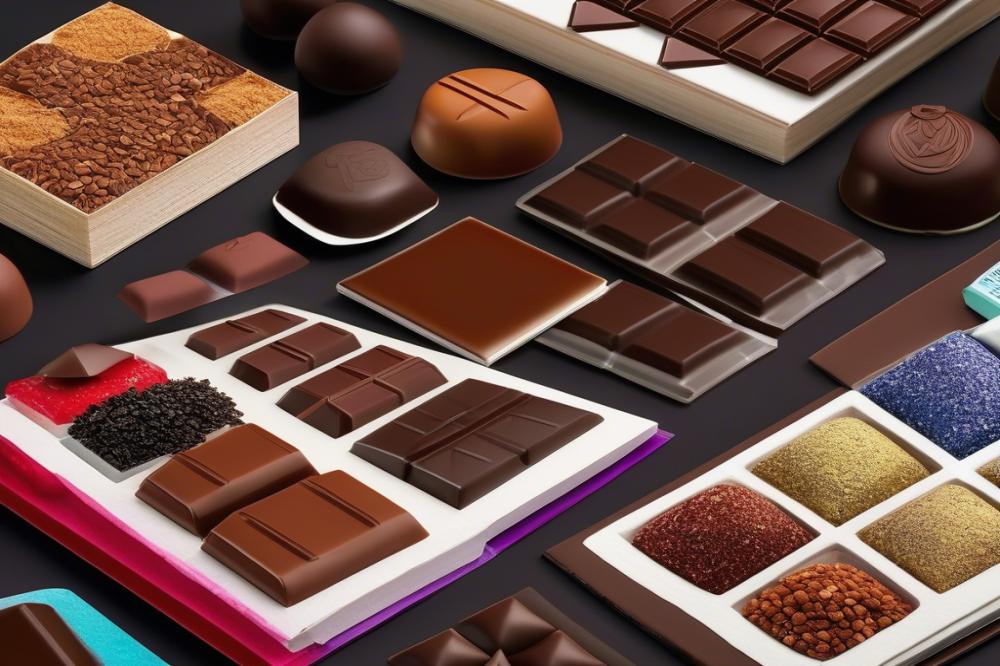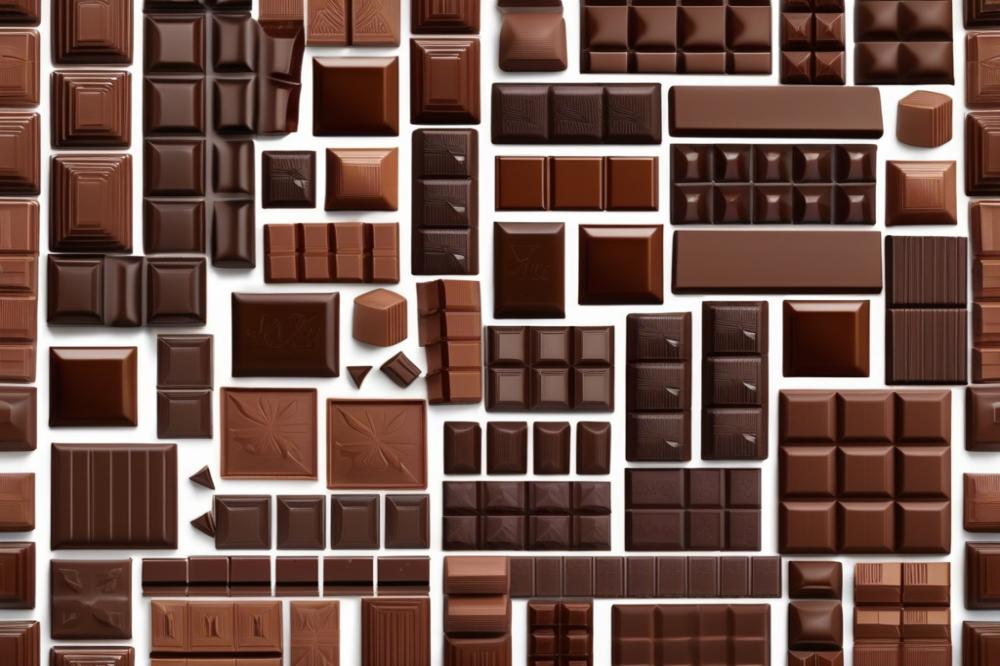Chocolate and Creativity: An Exploration
Chocolate holds a cherished place in many cultures around the globe. Its rich flavors and soothing textures often make it a favorite treat for all ages. Beyond mere pleasure, chocolate also brings about various discussions. The idea that it might function as a catalyst for Creativity fascinates both scientists and artists alike. This thought prompts further exploration into how such a delightful food might actually stimulate innovative thinking.
When people think about creativity, the focus typically shifts to environment or practice. However, could something as simple as a treat enhance cognitive function? Many claim that dark chocolate, in particular, serves not only as a mood booster but also may contribute to brain health. These aspects suggest a potential connection between what we eat and how we think, leading to greater productivity and an increase in innovative ideas.
Giving attention to the psychological effects of our food can reveal interesting insights. The tasting experience of chocolate itself is a form of sensory stimulation, which can be linked with enhanced creative processes. As the senses become engaged, people may unlock new avenues of thought. Exploring the relationship between food and creativity opens doors to understanding how simple pleasures can bring about complex innovations.
Chocolate and cognitive function

Many people enjoy dark chocolate for its rich taste, but it also has interesting effects on the brain. Research shows that dark chocolate can significantly improve cognitive function. This is mainly due to its high levels of flavonoids. These compounds are known for their ability to enhance blood flow to the brain.
Flavonoids may help with memory and focus. When consumed, they encourage the growth of new neurons. This process supports overall brain health and boosts productivity. Studies suggest that regular consumption can lead to better problem-solving skills. A recent experiment indicated that participants who ate dark chocolate performed better on memory tests.
The psychological effects of dark chocolate add another layer to the topic. It acts as a mood booster, making people feel happier. Feeling good can open the mind to new ideas and creative solutions. The sensory stimulation from tasting chocolate also plays a role. Each bite can spark various thoughts and connections, enhancing the overall creativity experience.
Incorporating dark chocolate into a balanced diet can be beneficial. This treat may serve as more than just a snack; it can be a part of an innovative thinking strategy. The combination of enjoyment and mental stimulation can lead to unique insights and fresh ideas. For those looking to enhance their creative processes, considering dark chocolate could be a delicious step forward.
The Psychological Effects of Chocolate

Numerous studies suggest that certain foods can enhance mood. Chocolate is often regarded as a prime mood booster. Many people find that when they eat it, they feel happier and more relaxed. This delightful treat can lift spirits and revive energy levels. When the mood improves, creativity tends to flourish alongside it. Feelings of happiness can spark new ideas and innovative thoughts.
The connection between mood and creativity is fascinating. A pleasant emotional state allows for more fluid thinking and imaginative solutions. Creative tasks become less daunting when someone feels good. Feeling upbeat may lead to thinking outside the box and producing unique concepts. In this sense, chocolate consumers might find themselves more productive in creative endeavors.
Delving into the tasting experience reveals another layer of enjoyment. The sensory stimulation from flavors and textures plays a significant role in our psychological state. Tasting dark chocolate, for instance, can be an exploration of various notes and richness. This process engages the brain in a pleasurable way, potentially enhancing cognitive function. It invites a moment of mindfulness that can clear the mind and sharpen focus.
Overall, the combination of improved mood and a delightful tasting experience may create a perfect storm for innovative thinking. Many people might not realize that their favorite treat can serve as more than just a snack. Engaging with food can also fuel creativity, making it an essential part of the process. By understanding these psychological effects, we can better appreciate how something as simple as chocolate can play a role in our creative lives.
Food and Creativity: The Role of Chocolate

Various foods have intriguing effects on creative thinking. Some items boost cognitive function. Others might impact our mood. A well-balanced diet can enhance our innovative capabilities. Among these foods, chocolate stands out as a fascinating option.
During brainstorming sessions, individuals often seek ways to improve productivity. Eating dark chocolate can be an enjoyable strategy. It is known to enhance brain health by increasing blood flow. This improvement can lead to sharper thinking and more creative ideas. Moreover, the psychological effects of tasting this treat can shift one’s mindset toward positivity. Such a mood booster can open the door to fresh perspectives.
Pairing chocolate with other foods can further stimulate innovative thoughts. Combining it with nuts provides not only a crunchy texture but also added nutrients. This combination brings about sensory stimulation that can spark new insights. Additionally, enjoying chocolate along with fruits creates a colorful and delicious mix. Each bite offers a unique tasting experience, invigorating the mind to explore different possibilities.
The relationship between food and creativity is complex yet exciting. Each item on our plates has the potential to influence our thoughts and ideas. When consumed mindfully, chocolate can be more than just a sweet treat. It can serve as a tool for enhancing creativity, particularly when incorporated with other stimulating foods.
Sensory Stimulation and Innovative Thinking
The world around us is filled with sights, sounds, and tastes that can spark our creative thoughts. Sensory experiences play a crucial role in innovative thinking. When we engage with our senses, we open the door to new ideas and perspectives. For many, tasting a food can evoke strong emotions and memories, leading to a boost in creativity.
The aroma of dark chocolate, for instance, is not just pleasant; it can ignite the brain’s ability to think outside the box. Research suggests that certain smells can stimulate brain activity, enhancing cognitive function. A rich and deep scent can trigger feelings of nostalgia, which may further encourage imaginative thought. Each whiff can elevate one’s mood, acting as a mood booster that prepares the mind for creative tasks.
When dishing out a piece of chocolate, several elements come into play. The texture provides a tactile experience that influences our emotional response. A smooth melt or a satisfying crunch engages the senses fully. As one savors this food, the brain becomes more active, creating a conducive environment for innovation. This complex interaction between taste and touch emphasizes the impact of food and creativity.
The tasting experience itself is vital for brain health and productivity. Scholars suggest that pleasurable tastes can stimulate areas of the brain related to reward and motivation. This connection can lead to improved focus and creative output. Engaging in such sensory pleasures might not only support cognitive wellness, but it can also enhance the overall innovative process.
Exploring the psychological effects of sensory stimulation can reveal insights about creative thinking. Happiness and satisfaction from enjoyable tastes can directly improve mental state. When people indulge in such sensory experiences, they often find themselves thinking differently and generating new ideas. All of these factors combine to paint a clear picture of how our senses can lead to greater innovation.
Dark Chocolate vs. Other Varieties
When it comes to chocolate, many people choose between dark, milk, and white varieties. Dark chocolate stands apart, not just in flavor but also in nutritional value. It contains higher concentrations of cocoa, which leads to more beneficial compounds for the body and mind. Meanwhile, milk chocolate and white chocolate contain more sugar and fat, which can overshadow any positive effects on mental activity.
A key advantage of dark chocolate is its impact on brain health. Rich in antioxidants, it can assist in improving cognitive function. The flavonoids present in dark chocolate may enhance blood flow to the brain, possibly leading to increased productivity. Some studies suggest that these compounds can even help with innovative thinking by fostering improved mood. Eating dark chocolate could act as a mood booster, helping to spark creativity.
Compared to milk chocolate, which is often seen as a sweet treat, dark chocolate offers a more intense tasting experience. This richer flavor can provide sensory stimulation, which engages not only the palate but also the mind. Conversely, white chocolate lacks cocoa and therefore has diminished health benefits. Its high sugar content offers quick energy but falls short on supporting overall brain function.
Individuals exploring the links between food and creativity often find that dark chocolate reigns supreme. While all types can bring enjoyment, dark chocolate’s potential psychological effects make it a top choice for those wanting to enhance their creative thinking. This variety encourages deeper thought processes and may inspire innovative ideas.
Final Thoughts on Chocolate and Creativity
The benefits of indulging in chocolate extend beyond mere pleasure. Research suggests that it can positively impact cognitive function, which is key for enhancing our ability to think creatively. These tasty treats contain ingredients that may help improve blood flow to the brain. Better blood flow can lead to sharper thinking and more innovative ideas.
In light of this information, it could be beneficial to incorporate chocolate into everyday routines. Perhaps a small piece during a break might spark new ideas. Even enjoying a sweet treat while brainstorming could create a relaxed atmosphere that encourages creative thinking. By integrating chocolate into our daily life, we open doors to fresh perspectives and innovative solutions.
Further investigation into the connection between chocolate and creativity is essential. Understanding how this delicious food affects our brains can lead to exciting discoveries. Future studies should explore various types and quantities of chocolate. Such research might uncover more ways to harness its potential for enhancing creativity. Encouraging curiosity in this area can only bring more exciting insights to light.



